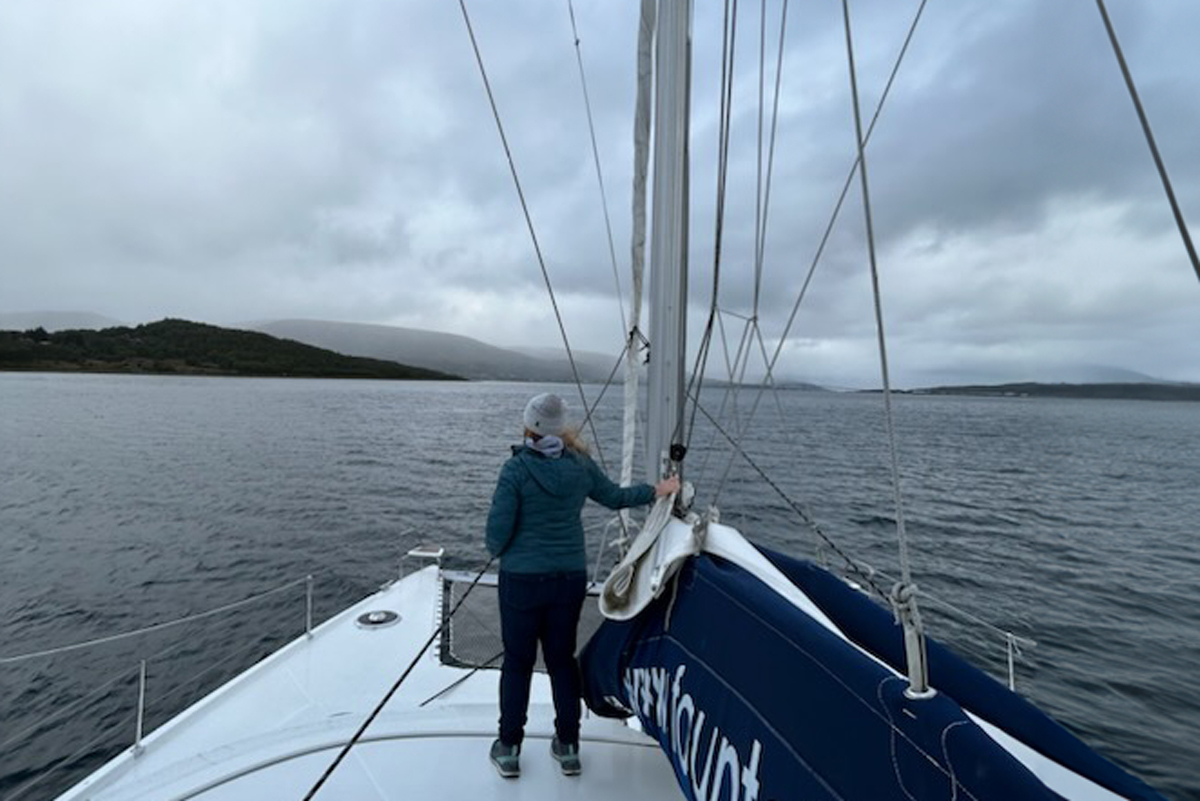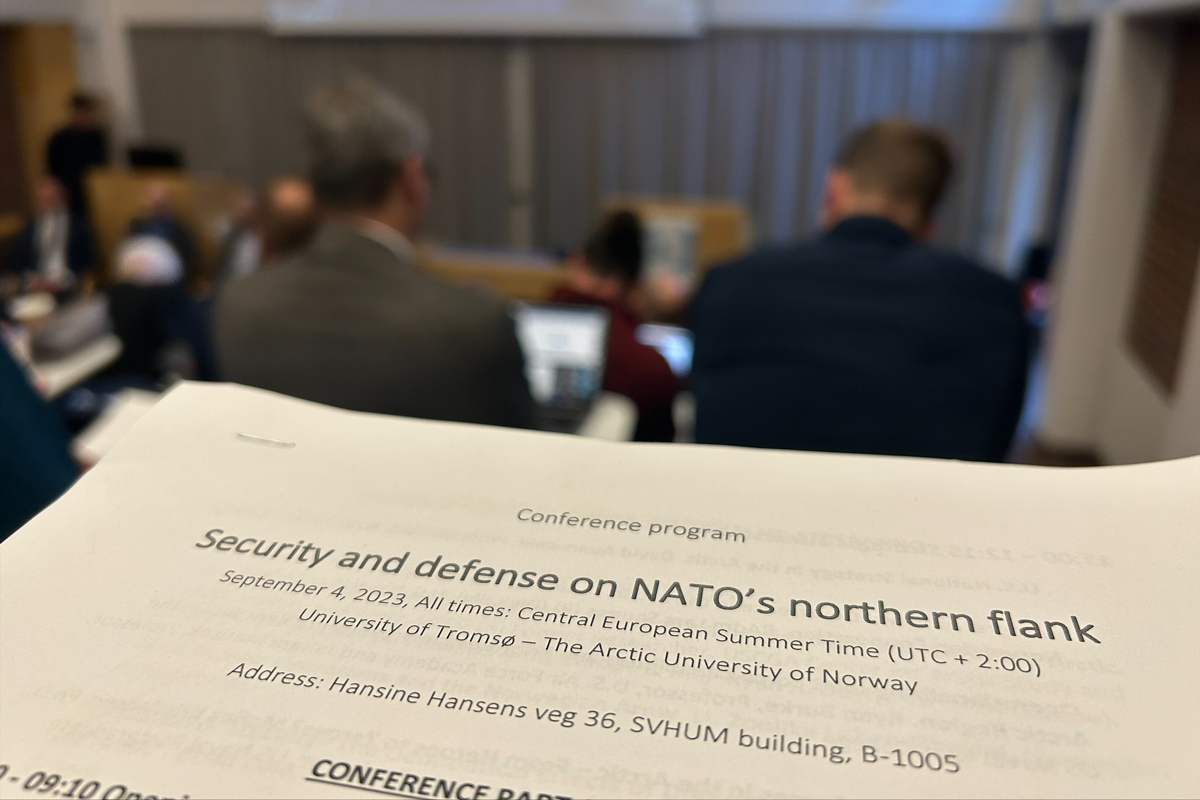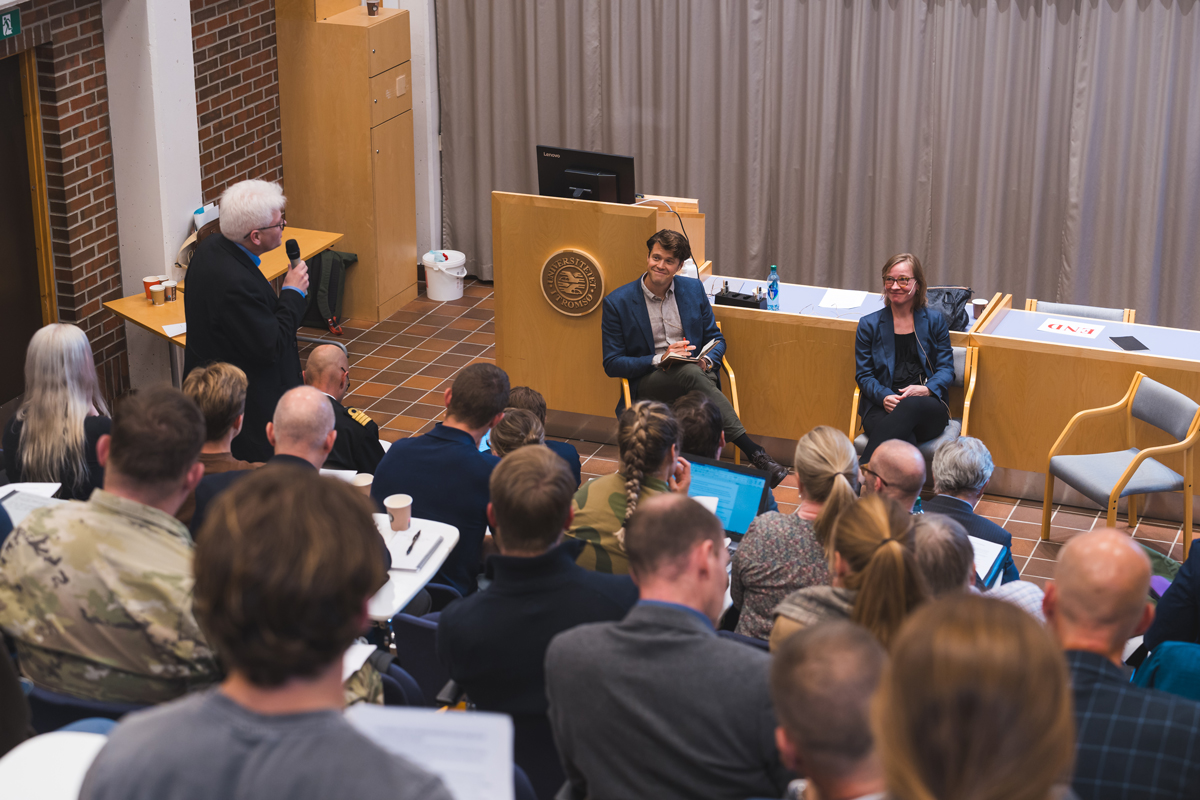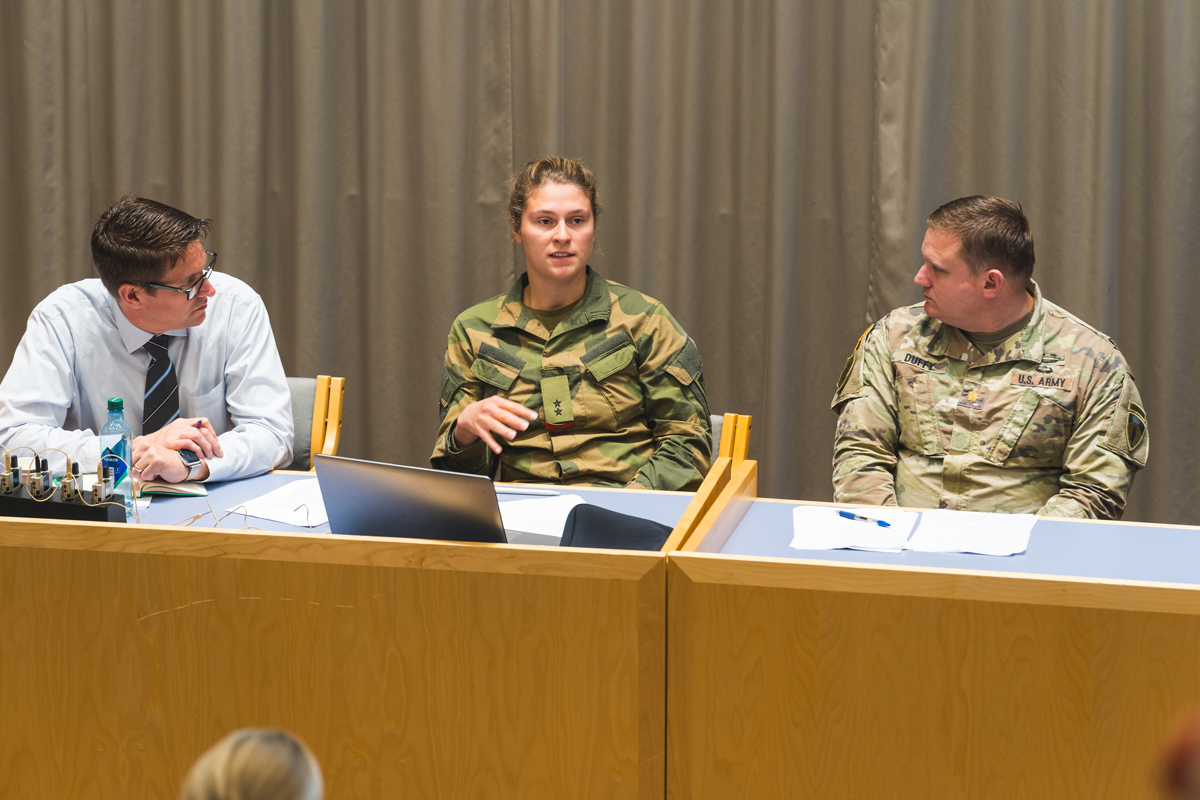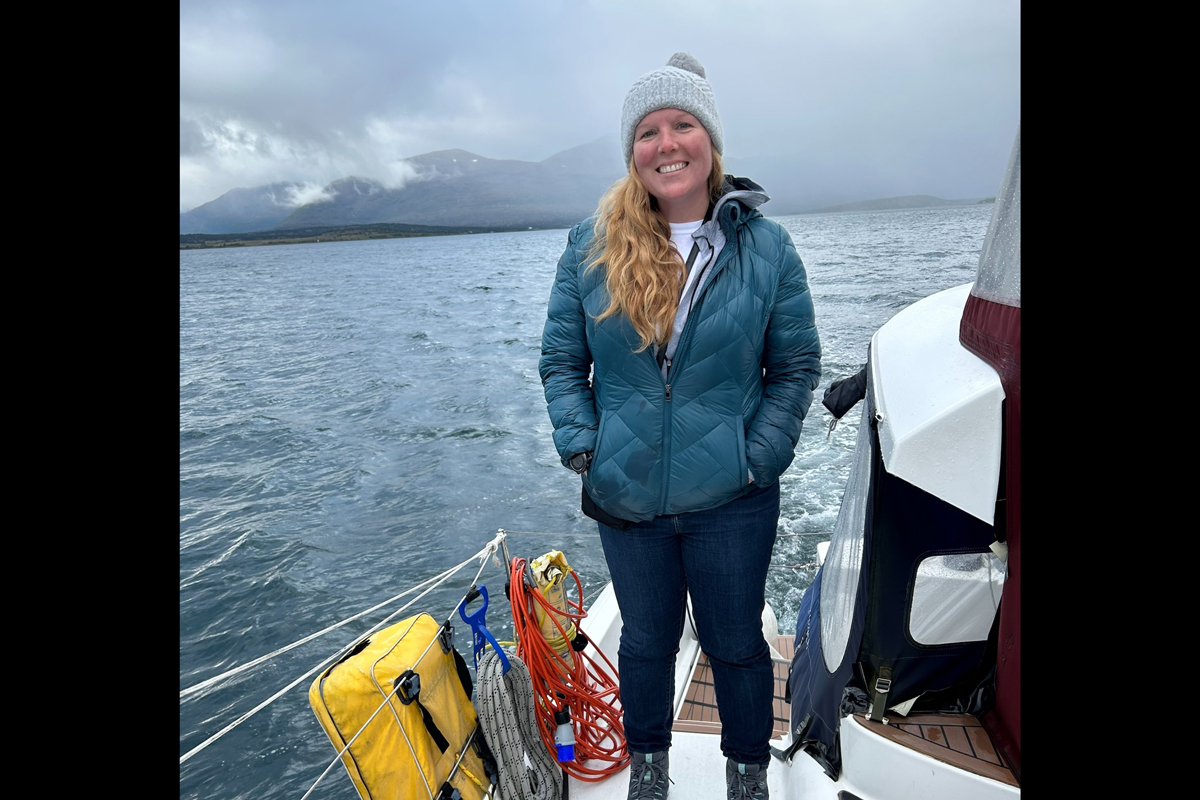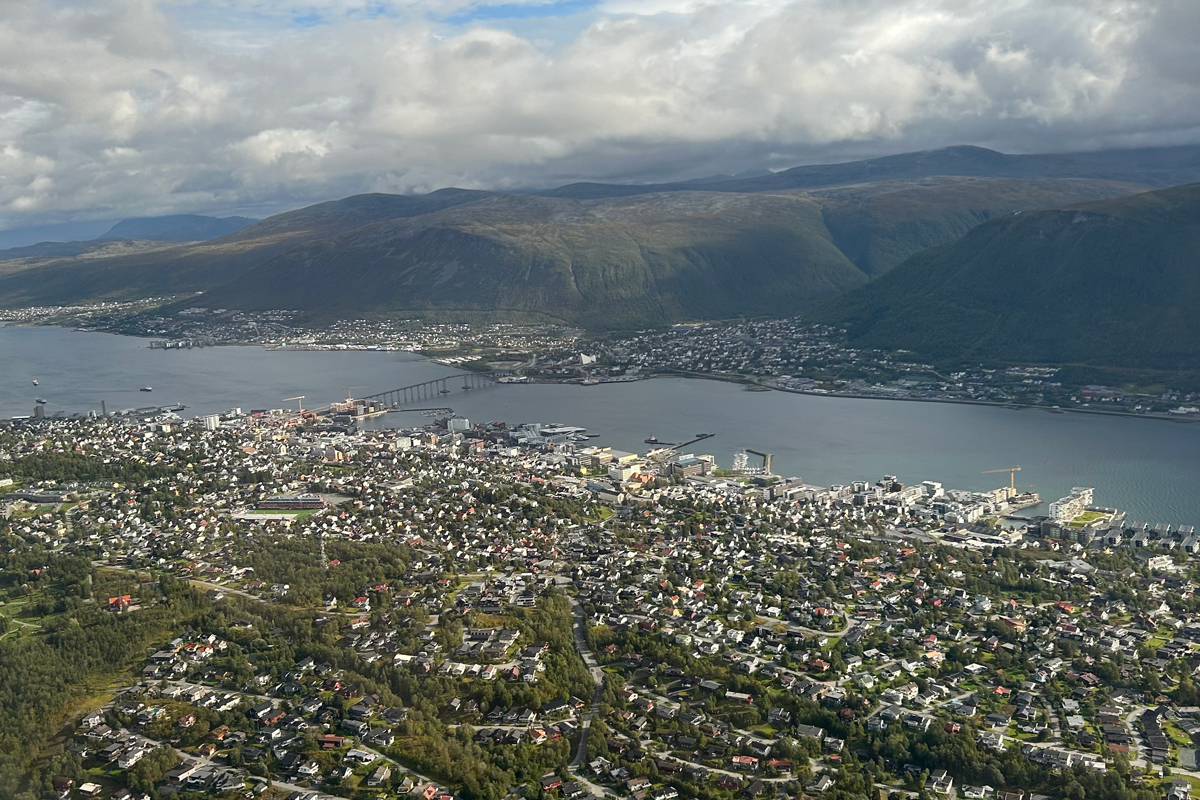UNO Researcher Shares Expertise at Arctic Defense Conference
Researchers and defense practitioners from the U.S., Europe, and Scandinavia—including Michelle Black, Ph.D., associate professor of political science at UNO—congregated in Norway in early September to discuss trends and challenges in regional security in the High North.
- published: 2023/09/19
Researchers and defense practitioners from the U.S., Europe, and Scandinavia—including Michelle Black, Ph.D., associate professor of political science at UNO—congregated in Norway in early September to discuss trends and challenges in regional security in the High North. The “Security and Defense on NATO’s Northern Flank” conference was hosted by the Norwegian Defense University College (NDUC) and the Arctic University of Norway on the campus of UiT in Breibika, Tromsø, Norway as part of an Arctic Defense research project.
Black, who is co-director of the Nebraska Deterrence Lab and lead researcher for NCITE and NSRI, presented her past and current research on Arctic Deterrence threats. After a day of presentations and discussions, conference participants broke into groups to identify key challenge areas that should be investigated to help NATO in their defense of the High North against possible aggression, such as: artificial intelligence, technology, survivability, decision-making, influence operations, non-state actors, and alliance coordination.
In 2019-2020, Black worked with NATO on the ‘Enabling Coherent Deterrence’ project with nine of her students to examine all types of threats (state and non-state) during a Deterrence scenario set in the timeframe of 2040. Today, Black is working with Deanna House, Ph.D., co-director at the Nebraska Deterrence Lab and assistant professor in the Information Systems Quantitative Analysis Department of the College of Information Science and & Technology, to use and advance the methodology built during that project to address current day challenges and threats in the High North.
Last spring, the Nebraska Deterrence Lab had their student researchers start investigating current day threats with actors that had an “interest” in Arctic security and defense.
"We are examining the Arctic scenario, based on today’s situation,” Black says. “We feel this area needs to be investigated due to its changing environment as well as certain actors’ increased interest in the area.”
Black explained that there has been increased activity because of climate change, due to the new survivability of certain capabilities, along with scientific research, that could make this area ripe for conflict. She also took away a few interesting points from the conference that confirmed how important the lab and its affiliated faculty and student’s research is to current issues.
“I walked away from that conference with the understanding that the U.S. security apparatus is not prepared to defend in the Arctic, and they rely mainly on their alliances such as NATO, especially Norway.”
Defense practitioners acknowledged that Arctic security is further down on the list of concerns, well below issues with China, Russia, and the current conflict in Ukraine, Black explains. For the past 20 years, the U.S. has been training and defending against threats in the Middle East, specifically in terms of capabilities and troops surviving in those environments. Today, focus has shifted to Russia and the Indo-Pacific areas of interest, which keeps Arctic security still at the bottom.
“Before, that would seem logical, as the harsh Arctic environment deterred any future conflict in the area,” Black says. “However, I don’t know if we can say that for the near future, especially since Russia is increasing their capability and maneuverability, as well as their partnership with the Chinese in the Arctic region.”
Black, with her colleagues and students, will continue examining complex subjects, such as the Arctic, in their work at the Nebraska Deterrence Lab.
